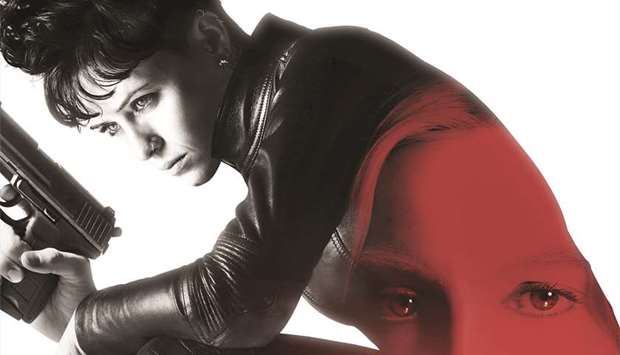Her Lisbeth doesn’t have the fierce fragility of Rooney Mara in David Fincher’s The Girl with the Dragon Tattoo, or the Nordic flintiness of Noomi Rapace, who played the character in the Swedish film trilogy. Foy’s Lisbeth is passionate and compassionate, despite her severe styling and frosty demeanour. Early on, her famed dragon tattoo is sliced open in an attack, and for the rest of the film, despite superglue and staples, it seeps blood. It’s the perfect encapsulation of this Lisbeth Salander, a bleeding heart whose wounds have never closed.
The Girl in the Spider’s Web is the fourth book in the Millennium series, and the first not written by Stieg Larsson, who died in 2004. David Lagercrantz wrote the new instalment, which has been adapted by director and co-writer Fede Alvarez, Steven Knight and Jay Basu. Alvarez made a splash a couple of years ago with his high-concept horror flick Don’t Breathe, wherein a blind man stalks a trio of teens who broke into his house. Those self-imposed limitations served his cinematic storytelling well, and with all restrictions lifted in The Girl in the Spider’s Web, chaos reigns, though it’s not all that compelling.
The plot is a classic “thingamajig” story, which bedevils the Bond franchise, the Mission: Impossible films and most superhero movies, so it’s somewhat appropriate a soft reboot/sequel to a film about a distinctive crusader would fall prey to this scenario. Lisbeth has to keep a (insert world-ending device here) out of the hands of (insert nefarious criminal organisation here). It’s a tale as old as cinematic time.
The twist is the nefarious criminal organisation has a deeply personal connection to Lisbeth’s past, and her quest rips open deep, old emotional wounds. Lisbeth’s status as a survivor of sexual assault has always been a huge part of her story, and in Spider’s Web, that is brought to the forefront, asserting that rape is what makes women bitter and violent. The film wants to deal with old trauma and the consequences of not facing that, but the way it’s deployed here is reductive, particularly with regard to Lisbeth and her sister, Camilla (Sylvia Hoeks), who is only defined by her past pain.
But for all of the film’s shortcomings, which include an overly complicated, uninteresting plot, baffling fight scenes shot from completely insane angles and, most egregiously, the complete waste of Vicky Krieps and Claes Bang, Foy is truly doing the work. She is both meticulous and earnest as Lisbeth, giving the character a big, beating heart underneath her black hood and creative eye makeup.
Lisbeth loves women, reveres womanhood and tortures men who hurt women. She’s the kind of hero we need right now, and her return to the screen is welcome. It’s a shame this story sends her skittering off chasing encrypted laptops and not true bad guys. Maybe next time. —TNS

